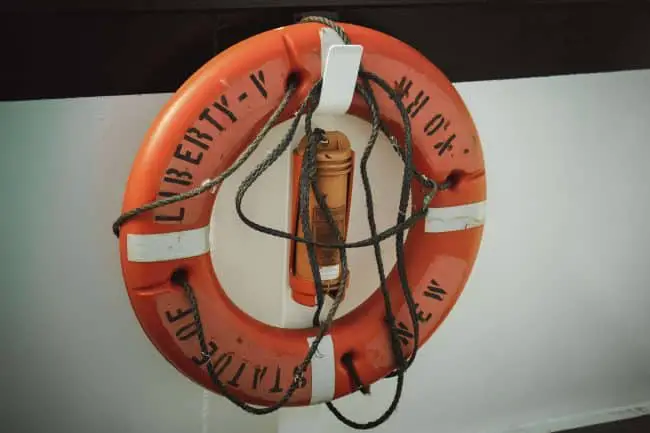Have you ever encountered a financial emergency? What was it about, and how did you deal with it? Here, we will explore some of the most common financial emergencies and how to deal with them.
9 Important Financial Emergencies and How to Deal with Them
Have you ever been in a situation that requires you to use some finances which you had not anticipated? In life, we’re sometimes faced with sudden inevitable occurrences.
Whether a sudden sickness, job loss, or sudden demise of a loved one, different financial emergences occurrences require us to dig our pockets deeper to fix them.
I’ve been using Personal Capital to plan for a financial emergency. I can use it to monitor my emergency fund and see how much cash is embedded in my net worth. Best part it’s completely free to use.
Financial freedom is all about having the flexibility to live completely free without any burden even if there is an emergency. Even if you’ve achieved financial freedom, building some sort of buffer in your financial plan for financial emergencies is important.
Before we explore more on the different types of financial emergencies and ways to deal with them, let’s look at what a financial emergency is first.
So, What are Financial Emergencies?
Financial emergencies are unexpected situations that require one to use some money that they didn’t intend. What happens when you find yourself in need of cash abruptly from an unanticipated event is what is referred to as a financial emergency.
If not resolved on time, it can pose immediate grave repercussions. These emergencies can occur at any time and in any circle of life, including at home, and work and more.
Since you can’t prevent some of these emergencies, the prudent thing to do would be to plan for them. That is, make sure that when the unexpected event occurs, you have some cash stashed somewhere to cushion you from the impact.
Although you cannot entirely plan for everything, having a fall back plan or some backup is always crucial.
List of Most Common Financial Emergencies
Here are 9 of the most severe financial emergencies you are likely to encounter.
Major Medical Emergencies
Some health or medical emergencies are beyond our control, and no matter how much we try to stay healthy and fit, they still occur. Although we all want to believe that we won’t get sick, planning for such things before they happen is the best thing to do.
The emergency may be directly yours or relating to you, for example, for a close family member. Even though we have insurance covers, it may not always suffice in such unfortunate occurrences.
A major medical emergency may require an ambulance, in some cases major surgery and post-surgery therapy. Depending on the severity of the medical emergency, an insurance cover may not cover the whole expense, and you may need to dig deeper into your wallet.
Also, if it’s your pet that requires medical attention, you may incur some costly expenses, especially relating to the veterinarian visits. If in case you haven’t insured your pet, then you may incur some considerable amounts which may strain your budget.
Thus, planning for such eventualities is vital. Sometimes, even with the flexible spending account (FSA), the medical emergency may consume all the funds in the account and still require more. In such an instance, you again go back to your pocket to cater to the remaining balance.
See Related: Recommended Wealth Management Tools
Job or Income Loss
A sudden loss of your source of income can be devastating not only financially but also emotionally and mentally. Having to cope with the ever-rising cost of living without a job is something to dread and which can cause tremendous financial strain.
Your employer can decide to let go of you when they no longer require your services. Thus, this is an event that you should plan for and have savings that will cover your needs, days, weeks, or even months before you secure another job.
If you’re in business, you know that some events may cause sudden closure of the company. That can leave you with no income and probably with huge expenses that need to be paid. Therefore, you need to plan for such eventualities.
That doesn’t mean you are over cautious or afraid. It means that you are wise enough to know that some events may cause your peril. When you plan, it means that you will be able to handle the financial emergencies when they occur and remain on your feet.
If for example, you abruptly lose your job or income, you need to be sure that you can still pay for the basic needs expenses. This will help you reduce the amount of pressure for the next few months, as you figure things out.
According to the rule of thumb, you need to have enough savings which can maintain you for three to six months. But, going by the current average rate of unemployment, you should plan even for more months.
You can always use these income opportunities to diversify your income beyond your employer too. This can help mitigate the damage in the event you are laid off.
Drastic Increase in the Cost of Living
Significant fluctuations in the economy like inflation can mean varying housing payments and bills for the ordinary citizen. Whether it’s the rent that skyrockets during the renewal of your lease, or it’s the heating bill that hits the roof due to the higher cost of energy, financial stress will be felt.
Since as an individual, you can’t control what happens with the economy, you need to have a fallback plan in place to help you in such financial emergencies. Regardless of how the economy is at the moment, you should know that anything can happen and then plan for it.
It is a win-win situation for you since if the event occurs, and you are safe. And, if it doesn’t, the money you’ve set aside for it, is still yours.
Various expenses will change due to inflation. Thus, understanding how to plan for such financial emergencies will take you a long way. When such events occur, those who had planned for it will thrive while those who didn’t face the wrath of hardships.
You can mitigate this by staying invested in assets that are protected by inflation like investing in commercial real estate or investing in stocks. Regardless, you should continually invest your money.
Need a place to do it? Try these top investing apps.
Home Repairs
Although you have an insurance cover to cover some major expenses that may occur, it does not always cover everything. Some home repairs may be sudden, costly, and also not be covered by the insurance.
In some cases, the insurance covers parts of the repair expenses, and you have to chip in extra money from your savings to cover the rest. If there’s a part of repair not covered by the policy, you have to look for an alternative source of funding which can be financially draining.
For example, some few years back, a friend had to pay around $4,500 to install a new interior drain system in the basement. Such an amount if not planned for can cause a significant blow to your finances.
Other home repairs like roof repair are covered by the insurance, although it might still require you to add some extra bucks to cater to the difference. It is vital for homeowners to do more than just relying on insurance, which may sometimes disappoint you.
See Related: 5 Tips to Build Your Wealth from Nothing
Unforeseen Travel Expenses
Sometimes, even after trying hard to stick to your budget and avoiding unnecessary costs, some events will still pop out. Life is short, and death is inevitable though we can take life insurance.
Traveling to attend burials for extended distant family members, friends or workmates, are but a few surprises that might come up.
Although you may have set-up a budget, some of these events are a must-attend, especially when it comes to family.
A last-minute plane ticket purchase can cost you a considerable amount of money. Combined with other expenses that may occur along the way, this might significantly dent your finances since it’s something you had not anticipated.
This means that you’ll need to adjust some other routine expenses to factor in the new cost. Without a proper reserve to cater for such eventualities, one may feel the heat of having to forego some crucial issues to provide for the sudden expense.
Having to stay broke even for a few days or weeks just because of an unforeseen event can be distressing to many.
To avoid all this hassle, planning for those events is essential, and it offers relief.
Abrupt Relocations
Having to suddenly relocate from one place to go live in a different location can be costly. For example, this may happen when your employer transfers you to a new office, or you accepted a job offer in another company that is based in another location.
The cost can be significantly high, primarily if the relocation allowances don’t cater to everything and you will need to add in something too.
If it’s a new job, especially in another country or another state, the expenses may be significantly high. Also, if the cost of living there is higher than the one in your former town, you may require finding extra cash for survival before your next paycheck.
If by any chance you are moving with your belongings, the cost of moving can be even higher depending on the distance you have to travel.
Moreso, if your employer does not cater for the whole expense, it can cause a significant dent on your finances. Having a cushion for such incidents helps you avoid stress and loans that may incur high interests when trying to secure extra cash to cater to such events.
One of the best ways to handle this is to try moving on a budget.
Car Repairs
Another type of financial emergency can come from car repairs. Some significant repairs may cause substantial costs that may not be favorable to your budget. Although many may argue that repairs are not expensive and one can use their credit card for these type of repairs, sometimes it’s not economical.
If in any case, you borrow on your credit card, most of them have interest rates which if you delay repaying, you may incur severe penalties. Other repair costs can also be a bit high and can significantly dent your financial budget.
Assuming some of these small issues can cause you some severe economic damage that you will wish you never overlooked.
An Unexpected High Tax Bill
For many Americans, an un-expected high tax bill is an unwelcome surprise that can cause significant financial difficulties. With a high tax bill, many have to adjust the spending to cater to the expense. I’ve seen this happen time and time again. Your employer might not be taking out the right amount of taxes. Come tax season this can cause some headaches.
An unexpected high tax bill can come in as a big blow. Moreso, when you don’t have much savings in your account. If you use all your account savings to pay for Uncle Sam’s outrageous tax bill, you might need even to borrow to pay for your regular expenses.
Also, if you were expecting a higher tax refund and receive much less than expected, you will also need to make some adjustments. Some activities may have to be foregone until you can eventually manage.
Many people receive their tax savings during the year in their paychecks and hence when the year ends, they have fewer refunds. For this kind of financial emergency, it’s wise to consult tax experts to avoid experiencing such surprises.
See Related: How to Raise Your Credit Score 200 Points
Major Pet Care Emergencies
For pet owners, this can be another source of financial emergencies. Many people can handle the regular costs that come with owning a pet, but many unforeseen expenses may be out of reach to them. For example, if your pet needs emergency surgery, you might have to deal with costs that will stretch your budget.
The managing director of Kiplinger.com, for instance, had to part with $9,000 for his dog’s medical emergency deficit. This was as a result of the fact that pet’s policy could only cover $4,000 out of the $13,000 needed.
Without a cushion, this can be very detrimental to your finances.
How to Deal with Financial Emergencies
With all these unforeseen expenses, it’s wise to have a plan to enable you to handle them when they occur. You ought to have a contingency plan or a financial emergency assistance plan in place. Use Personal Capital to ensure you are tracking your emergency fund balance and spending habits.
So, here are some financial emergency options that you ought to consider:
Set-up an Emergency Fund
One of the money mistakes to avoid is not having an emergency fund. An emergency fund refers to an account for money set aside to cater to an unexpected personal financial dilemma. You can use the funds to cover any expenses that result from any of the eventualities mentioned above and more.
The primary purpose of this fund is to ensure that when such sudden events occur, you don’t experience grave financial difficulties.
For any emergency fund to be helpful, it must contain enough funds that can cover most of these financial emergencies. For example, according to many financial planners, the account should have at least three to six months of your income equivalent. Since there are no accounts in financial institutions designated for an emergency fund, it’s upon the individual to request a set up for one. Your emergency fund is likely a money market account or a savings account.
You must decide what you want to use emergency fund for. This is to avoid using it for events that don’t pose a financial emergency. The emergency fund can also help you avoid incurring losses from huge interests rates that result from loans taken to handle emergency costs.
The best way to handle the above mentioned unforeseen challenges is to set up a financial emergency fund account. This is a money reserve that can help you cater to specific emergencies and thus will prevent personal financial crisis.
Although may sometimes get tempted to use the fund for other needs, having an emergency fund list and sticking to it will help you avoid misuse.
My emergency fund is with American Express Savings and covers at least 9 months of expenses.
Maintain a manageable debt level
This is another excellent way of ensuring that you can handle financial emergencies with less strain when they occur. If you maintain a low and controllable debt level, then you’re guaranteed that you will get financial emergency assistance when the need arises.
Although zero debt can be impossible, it’s always good to try to maintain a low one as much as possible. Also, borrow what you can afford to repay, which is one of the best millionaire hacks that work.
While this approach may not be as effective as an emergency fund, it will still help to sort you out during those needy situations. The only shortfall of this method is that you will pay high interest rates, especially when you don’t pay on time.
Using the money that you don’t have reduces your next paycheck as you will have to pay for it then. These are some of the most proven methods to clear your debt.
Create and Stick to a Budget
Having a personal budget and sticking to it is another incredible option for dealing with sudden financial emergencies. You can significantly reduce a lot of unnecessary costs with a budget planner. This method ensures that you have enough money to handle unexpected financial needs without breaking a sweat.
If you stick to your budget, then you avoid the temptation of engaging in impulse buying and borrowing.
That way, you won’t consume money you had not planned to use. Although it’s the most challenging option to adhere to, it’s an easy way to avoid loans.
Download my free annual budgeting spreadsheet that will help you create a financial plan and stick to it.
Conclusion on Financial Emergencies
Even with all these possible financial emergencies, proper planning will help you avoid economic frustrations. A financial emergency doesn’t have to be the source of your financial ruin or downfall.
I believe that this guide will help you understand different financial emergencies and how to deal with them.
Have you ever encountered a financial emergency, and how did you handle it? Let us know in the comments below. We’d love to hear from you.
Related Resources
- How to Pay off Student Loans When You Don’t Earn A Lot of Money
- Why do Americans Love to be Car Poor?
- Ultimate Guide to your Us Bank Routing Number (+ A Full List)
Subscribe to the Millionaire Mob early retirement blog newsletter to find the best travel hacking tips, dividend growth investing, passive income ideas, and more. Achieve a financially free lifestyle you’ve always wanted.







No Comment